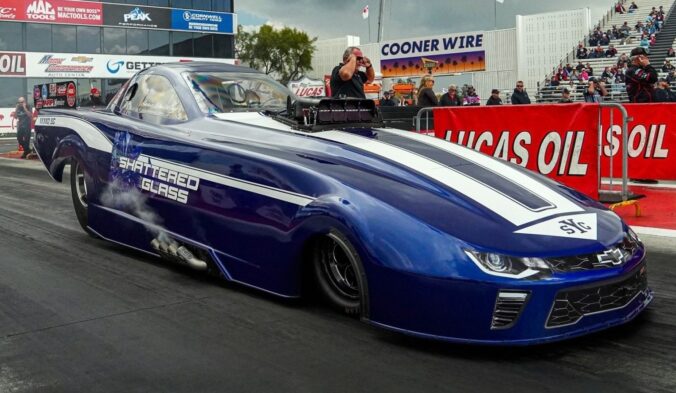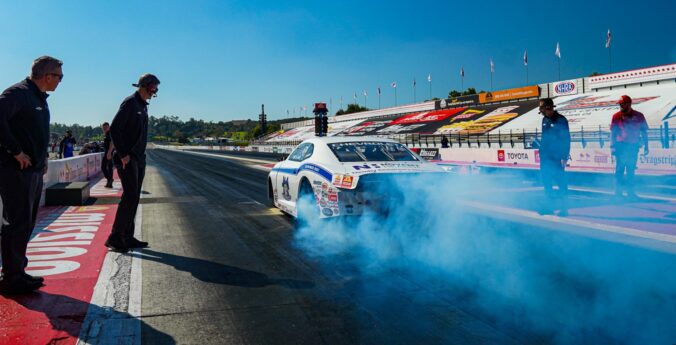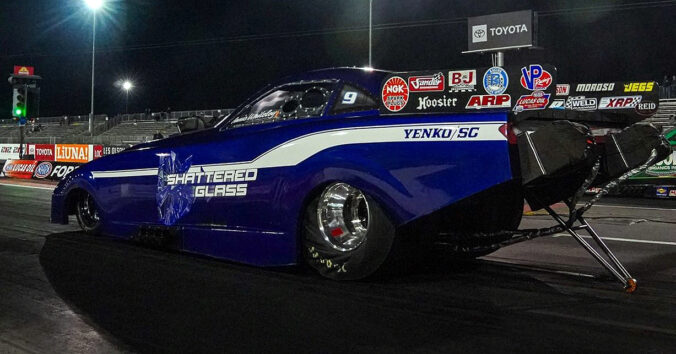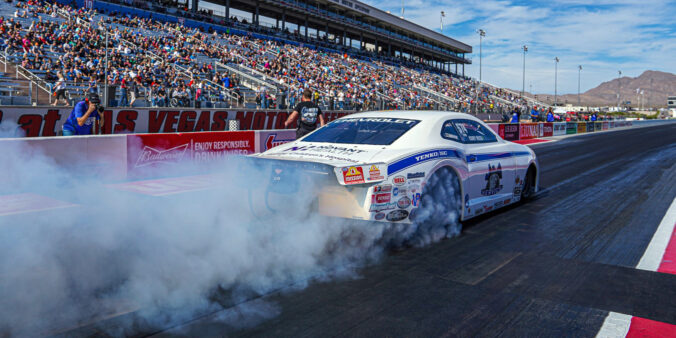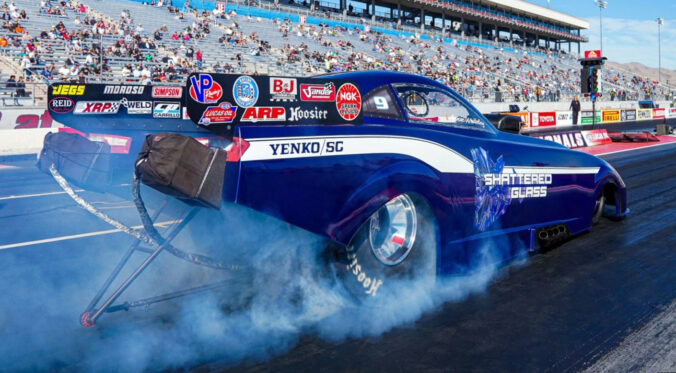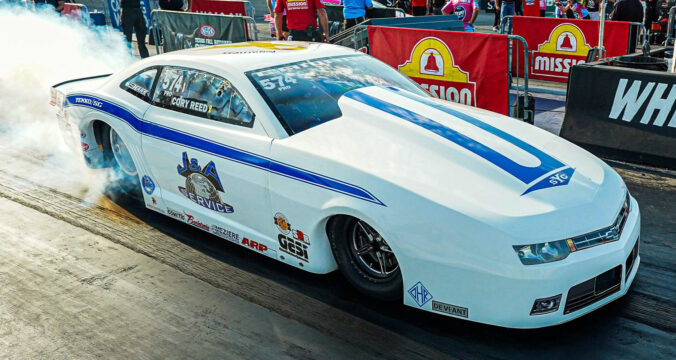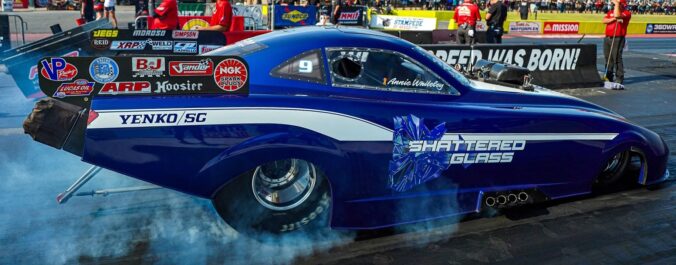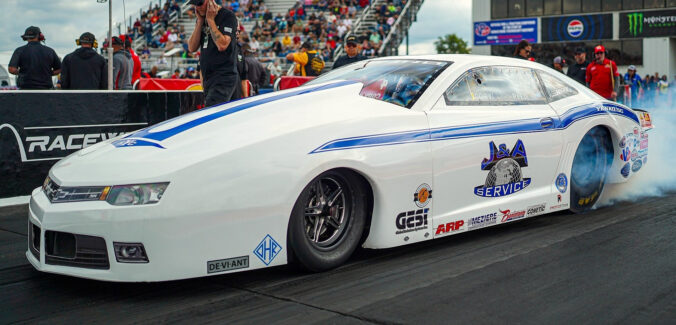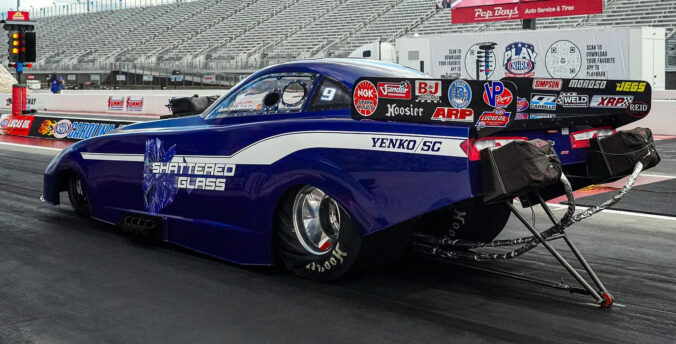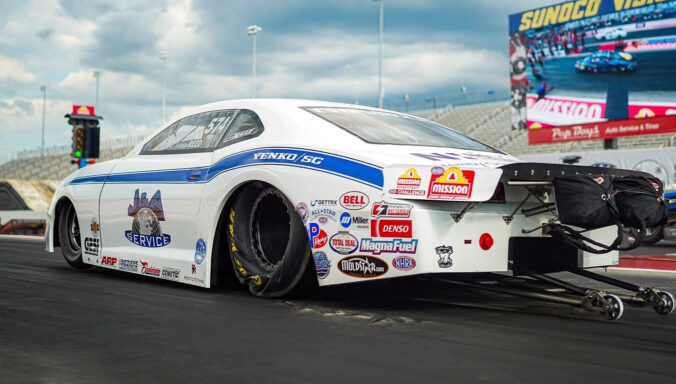The final race of Annie Whiteley’s season ended just like literally 90 percent of her other NHRA national event starts this season: in the second round. The six-time winner didn’t lose in the first round once all year, but for the ninth time in 10 2024 nationals, she was gone after round two.
Whiteley, who went to the final round at the other one, Maple Grove, ran an outstanding 5.43 in the quarterfinals here but fell to Ray Martin’s nearly identical 5.44. “I’m trying to practice going in [staging] second,” she said, “but I’m not there yet. I’m still a little behind. Now that half the cars out here have a two-step, everybody wants to get in there first. So do I. Everybody’s doing it, and some of them are double-bulbing me, and I have to be ready for it.”
The J&A Service/YNot Racing team never made a bad run all weekend. Whiteley clocked a 5.47 at 266 mph right off the trailer and a 5.49/267 in what turned out to be Top Alcohol Funny Car’s only other qualifying session. A 5.42/268, her best run of the whole season, easily eliminated Christine Foster’s backpedaling 6.04/190 in a first-round clash between the only female drivers in the field, but a similar 5.43/268 wasn’t quite enough in the quarterfinals when Martin, driving the Miner Brothers car fielded by third-generation racer Greg Miner, made the best run of his career, a 5.44. (It was no fluke, either – he ran another .44 in the semi’s.)
“I need to get better at going in second, that’s all there is to it,” said Whiteley, who was anything but late with a .065 reaction time – it just wasn’t in the .020s, as Martin’s was, and as Whiteley has been numerous times since crew chief Mike Strasburg made the move to the two-step early this season. “I don’t want to have to race the other guy to get in to the pre-staged light first every time. I want to be good either way – staging first or staging last – and I’m getting my composure and getting my steps down, but Ray’s out there bracket racing when he’s not running Alcohol Funny Car and he’s really gotten good at it.”

